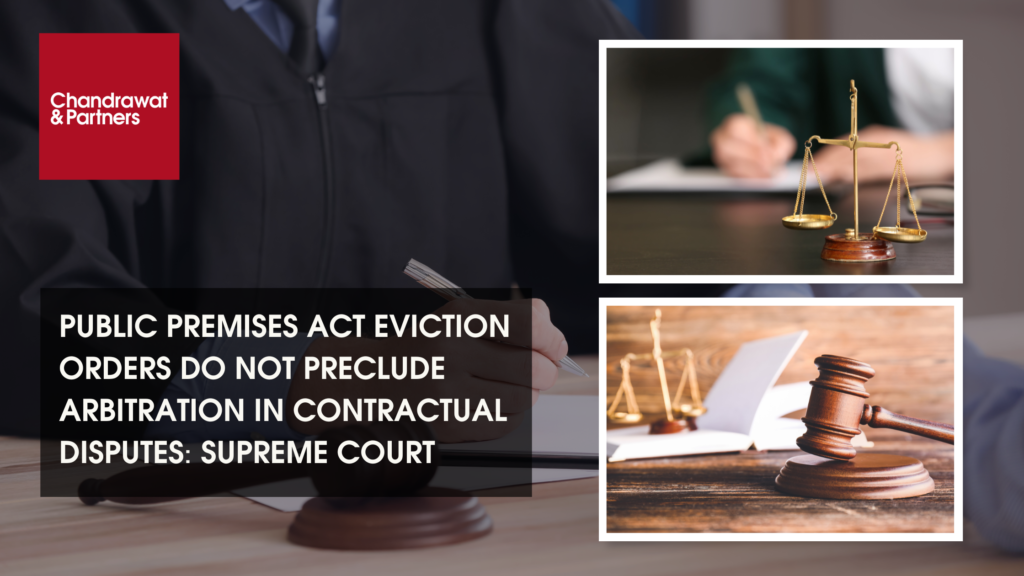Home > Recent Judgements > Public Premises Act Eviction Orders Do Not Preclude Arbitration In Contractual Disputes: Supreme Court
Oct 23, 2024

BACKGROUND
In the case of Central warehousing corporation & Anr. Versus M/s Sidhartha tiles and sanitary Pvt. Ltd., the respondent had entered into an agreement with the appellant wherein the latter would provide adequate room for storage and provide an arbitration clause in case of disputes. Upon expiration of time, the respondent requested for a renewal of the agreement, but the appellant refused to do so because of unpaid arrears of the storage fees due to the new rates. Thereafter, the complainant invoked the said arbitration clause, and the High Court directed that the matter be arbitrated. The appellant challenged this decision in the Supreme Court, claiming that because there is a possession order made under the Public Premises Act there is no basis for going to arbitration. The Supreme Court however, agreed with the High Court’s position, holding that the arbitration clause covered the disputes on the agreement and related issues such as renewal and alteration of the fees, and the Public Premises Act did not prevent such arbitration.
ISSUES
- Whether the Public Premises Act, 1971 overrides the Arbitration and Conciliation Act, 1996?
- Whether the High Court committed any error in appointing the arbitrator while exercising the jurisdiction under Section 11 of the Arbitration and Conciliation Act, 1996?
JUDGEMENT
The court interprets that the order of eviction under the Public Premises Act is not an act preventing invocation of the arbitration clause in the context of a contract. The warehousing agreement in question had an arbitration clause, which the respondent tried to extend but the appellant denied because the respondent failed to pay the new charges. The respondent initiated arbitration under Section 11(6) of the Arbitration and Conciliation Act 1996, and the High Court directed the arbitration. The respondent was aggrieved, but the Supreme Court held that the disputes concerning the renewals and the renewals of the fees stem from the agreement and did not interfere with arbitration; accordingly, the appeal was dismissed with costs to the appellant.
Apparently, the appeal of the warehousing company has been unsuccessful, and in consequence, the company was ordered to pay costs of Australian Rs. 50,000 for initiating unnecessary litigation.
OBSERVATION
The essence of the observation in this case. The Supreme Court supported the High Court ruling, which directed the matter through arbitration according to the provisions of Section 11(6) of the Arbitration and Conciliation Act, 1996. The Court held that the Public Premises Act is subordinate to the Arbitration Act, and that a decree of eviction passed under the provisions of the Public Premises Act does not bar the enforcement of an arbitration clause in respect of a contract. Since the dispute related to the renewal of the agreement and revision of storage charges, which are both subject of the arbitration clause, the arbitration process was proper. The warehousing company’s notice of appeal was rejected and the company was ordered to pay Rs. 50,000 as costs for pursuing the litigation in unnecessary manner.
For more information or queries, please email us at
enquiries@chandrawatpartners.com




